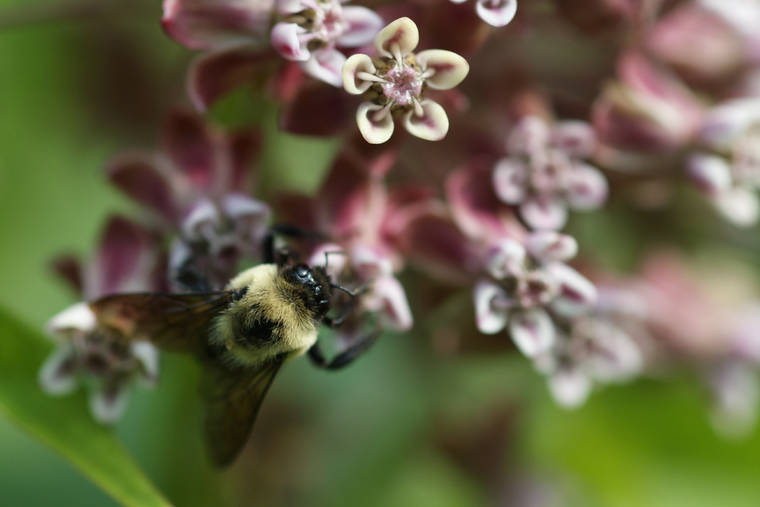WASHINGTON — The Environmental Protection Agency will allow farmers to resume broad use of a pesticide over objections from beekeepers, citing chemical industry private studies that the agency says show the product is only a lower-level threat to bees and other wildlife.
Friday’s EPA announcement makes sulfoxaflor the latest bug- and weed-killer defended by the Trump administration despite lawsuits alleging environmental or human harm. The pesticide is made by Corteva Agriscience, a spinoff created last month in the DowDuPont merger.
A federal appeals court had ordered the EPA to withdraw approval for the pesticide in 2015, ruling in a lawsuit brought by U.S. beekeeping groups that not enough was known about what it did to bees.
EPA Assistant Administrator Alexandra Dapolito Dunn said Friday that new industry studies that have not been made public show only a low level of risk to bees and other wildlife.
Dunn said EPA’s newly reset rules for use of sulfoxaflor, such as generally prohibiting spraying of fruit and nut-bearing plants in bloom, when pollinators would be attracted to the flowers, would limit harm to bees. She called it “an important and highly effective tool for growers.”
Michele Colopy, program director of the Pollinator Stewardship Council, one of the beekeeping groups that had successfully sued to block sulfoxaflor, said the EPA limits weren’t enough to protect bees and other beneficial bugs whose numbers are declining.
“We understand farmers want to have every tool in their toolbox,” when it comes to curbing insects that damage crops. “But the … pesticides are just decimating beneficial insects,” Colopy said.
An environmental group charged the EPA with sidestepping the usual public review in reapproving broader use of the pesticide.
“The Trump EPA’s reckless approval… without any public process is a terrible blow to imperiled pollinators,” said Lori Ann Burd, director of the Center for Biological Diversity’s environmental health program.
Other Trump administration decisions have upheld market use of the weed-killing glyphosate, which is now the target of thousands of consumer lawsuits over alleged harm to people exposed to it, and shelved an Obama-era decision to ban the pesticide chlorpyrifos as a threat to human health.
———
This story has been corrected to show pesticide made by Corteva Agriscience, a company created last month in a spinoff from DowDuPont merger.


